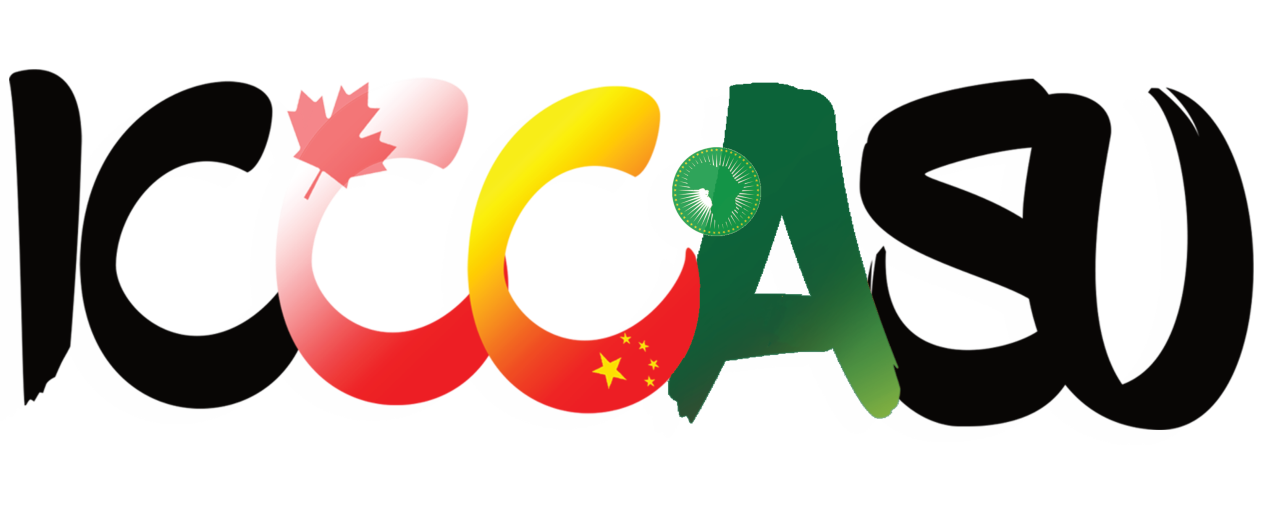In 2014, the International Conference on Canadian, Chinese and African Sustainable Urbanization (ICCCASU) emerged as a joint initiative between The United Nations Human Settlements Programme (UN-Habitat) and the University of Ottawa. The organization has since grown to include several Canadian universities including the University of Ottawa, Carleton University and McGill University, as well as several Chinese and African universities, and NGOs. As an international think-tank, ICCCASU brings together researchers, academics and representatives from government and industry for in-depth discussions on cities and urbanization to promote the dissemination and implementation of UN 2030 SDGs and the New Urban Agenda adopted in 2016. Moving beyond the traditional practices of North-South or South-South cooperation, ICCCASU fosters an international triangular dialogue among African countries, Canada and China, which together account for over 30% of the world’s urban population.
To date, ICCCASU has organized four conferences. The first ICCCASU conference was held in Ottawa, Canada in 2015. ICCCASU II, a 500-person forum held in cooperation with the government of Cameroon, was held in Yaoundé, Cameroon in 2017 (www.icccasu2017.org). ICCCASU III was held in the summer of 2019 in Chengdu, China in partnership with China Centre for Urban Development (CCUD), affiliated with the National Development and Reform Commission of the Chinese government. It included representatives from over 23 countries (www.icccasu2019.org). The fourth conference, funded by SSHRCC, was held in Montréal, Canada in July 2021. ICCCASU IV marked a major milestone as the first in a second rotation of conferences held among the three regions of interest. Additionally, ICCCASU IV was the only UN-sponsored conference in Canada re-examining cities within the context of the COVID-19 pandemic, and attracted representatives from over 40 countries (www.icccasu2021.org).
In addition to the biennial conferences and training sessions, the ICCCASU team was invited to join the official Canadian Delegation to the United Nations Habitat III Summit in Quito in June 2016, where ICCCASU hosted an important roundtable regarding Canadian contribution to and participation in Habitat III. ICCCASU was also one of a handful of organizations selected to mount workshops at the 10th World Urban Forum in February 2020 in Abu Dhabi, United Arab Emirates, themed as Policy dialogue on culture and innovation in city-building based on case studies from different regions and perspectives. The ICCCASU workshop at the 11th World Urban Forum in July 2022 in Katowice, Poland, was titled Urban Transformation in Socialist and Post-Socialist Countries in Response to the Pandemic: Lessons Learned. To celebrate World Cities Day, and in collaboration with the Ministry of Urbanism and Housing of Democratic Republic of Congo (DRC) and UN-Habitat, ICCCASU organized a two-day training workshop on affordable housing in Ottawa and Kinshasa simultaneously in a hybrid format. The training workshop was an immense success, as the participants shared and exchanged experiences, challenges, and opportunities from Canada, China, Morocco, Senegal, DRC, among others.
In addition, ICCCASU produced a series of reports for each conference and workshop (ICCCASU Reports 2015, 2017, 2018, 2020), including a study for Global Affairs Canada entitled Recommendations on Areas of Possible Collaboration between Canada and China in Africa. Many of the scientific or policy papers presented at ICCCASU conferences and workshops are published in academic journals. These publications have become important references for industry professionals and policymakers working in sustainable urban development across the globe. In 2020, ICCCASU signed with Springer Publishing to create a book series entitled City Development: Issues and Best Practices. The first book of our series is on pandemic-related studies and is entitled The City in an Era of Cascading Risks: New Insights from the Ground.
ICCCASU has now entered a new phase of development. By taking advantage of its rich networks, ICCCASU is expanding to conduct transnational and multi-disciplinary and interdisciplinary empirical research projects and best practices cases on urban development. The team is actively developing various proposals while collaborating with academics, professionals, and politicians worldwide. Through this initiative, we believe that our current, up-to-date research will demonstrate best practice for sustainable and inclusive urban development worldwide, but particularly in developing regions.
Over the past several years, ICCCASU has successfully mobilized thousands of academics, researchers, professionals as well as local populations, and trained hundreds of city officials from more than 50 countries to participate in building sustainable and inclusive cities. ICCCASU has also received almost one million dollars in funding (cash and in-kind) from governments of Canada, China and Cameroon, as well as a number of institutions (ex. SSHRC) to support its activities. ICCCASU has expanded its initiatives from conferences to training courses, workshops, consultations, publications, research projects and best practice cases, and has proved to be a reliable and authoritative voice, developing a strong network among urban researchers and practitioners worldwide.
Cities are centers for innovation. Urban development, when managed sustainably and inclusively, has the ability to lift people out of poverty, improve access to education, foster economic growth, and reform land management. With a track record of significant contribution to crucial discussions on sustainable and inclusive urban development under the SDGs, ICCCASU’s reputation as an international think-tank is well established and respected. We are now preparing ICCCASU5 “Financing African Cities”, which will be held at the UN-Habitat headquarters in Nairobi, Kenya, from Dec 10th to 17th, 2023.
ICCCASU Secretariat
60 University St. (030)
Simard Hall
Ottawa, Ontario
Canada K1N 6N5
E-mail: [email protected]
Web: www.icccasu.org
